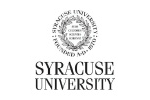



ONLINE THEATER HISTORY COURSE
Shakespearean Tragedy and Tragicomedy, Italian Style
LIVE THEATER HISTORY COURSE with Dr. Eric Nicholson
Dates: January 11, January 18, January 25
Schedule: Wednesdays
Time: 2:00 – 3:15pm ET | 11:00am – 12:15pm PT |
7:00 – 8:15pm London
Contact Hours: 4 Hours
ONLINE THEATER HISTORY COURSE
Shakespearean Tragedy and Tragicomedy, Italian Style
Course Description:
Not only are almost half of Shakespeare’s plays set in Italy, but his dynamic and provocative drama makes crucial use of numerous Italian plots, tropes, character types, theatrical devices, and cultural connotations. Like many of his comedies, several of his tragedies remain fresh and vigorous today thanks to the lively contrasts and rich variety of their Italian style. The avant-garde Italian drama of Shakespeare’s time also enabled him to experiment with a third genre, called “tragicomedy,” during the final years of his exceptionally successful career. In this course, we’ll pursue close comparative study and interactive discussion of three much-admired and frequently performed plays, to enhance our understanding of how their Italianate qualities continue to provoke serious thought as well as strong emotional reactions from audiences across the globe, over four hundred years after their first productions. By focusing on scenes from Romeo and Juliet, Antony and Cleopatra, and The Tempest, we will be able to gain fresh insights into the parallels and differences among these tragedies—but also tragicomedies, especially The Tempest--of love, desire, and political conflict. With the support of powerpoint lecture presentations, we will pursue informed, open-minded inquiry into these innovative plays’ respective treatments of such matters as Mediterranean myths and history, erotic passion vs. social-political pressure, poetic fantasy vs. prosaic reality, female vs. patriarchal power, Selfhood and “Otherness,” relations between ancient and “New” Worlds, and the capacity of Love to triumph over death.
A special feature of the course is the opportunity to imagine and propose specific ways for bringing these classic Italian style plays from the page to the stage. Participants will be encouraged to approach them as interactive scripts that pose challenging questions and invite a wide variety of interpretations, precisely because of their creative, often volatile, and always stimulating mix of English and “made in Italy” qualities.
Course Objectives:
Instructor:
For the past twenty years, Eric Nicholson (Ph.D., Yale University) has been teaching courses in literature and theatre studies at Syracuse University Florence, and at New York University, Florence. At both these venues and elsewhere, he has also directed numerous productions of classic plays, among them Shakespeare’s A Midsummer Night’s Dream, Much Ado About Nothing, and The Tempest. Beyond lecturing, directing, and publishing widely in his field, Eric’s professional activity extends to acting, voice work, and public presentation: credits include Oberon in the Maggio Musicale Fiorentino production of Purcell’s Fairy Queen (Teatro Goldoni Florence, 2013), and Fool/Theseus in “Promised Endings: an Experimental Work-in-Progress based on Oedipus at Colonus and King Lear” (Verona, 2018). He is the narrator of the English video documentary for the Museo dell’Opera del Duomo, Firenze, and of English audio guides to museums in the Tuscan cities of Grosseto, and Massa Marittima. In full historical costume, he has appeared as Lorenzo the Magnificent, Leonardo da Vinci, and others in several live performance events, videos, and broadcasts, and most recently (2021) as Dante and Boccaccio for Rocky Ruggiero: Making Art and History Come to Life.
Virtual Classroom: Full access to an online educational platform with syllabus, videos of recordings, reading list, podcasts, discussion forum, and more.
Location: LIVE INTERACTIVE ON-LINE THEATER LECTURES
Optional Readings:
Readings to be provided to students in PDF format prior to the beginning of course.
Complete syllabus will be provided upon registration.
LECTURE 1 - A TRAGEDY OF STAR-CROSSED LOVERS IN FAIR VERONA BECOMES A GLOBAL PHENOMENON… BUT IT COULD HAVE BEEN A COMEDY: ROMEO AND JULIET
-Wednesday, January 11
Romeo and Juliet as a comedy, with a happy ending?! One might think that this would be a spoof of the modern world’s most famous love tragedy, but in fact the comedic alternative was readily available, and often performed in Renaissance Italy. Study and discussion will focus on the play’s multiple Italian sources and analogues, among them an important “commedia dell’arte” scenario that ends with the marriage of the Romeo and Juliet characters. We’ll also give close attention to how the comic aspects of the play derive from ancient classical texts, and how its various sonnets and sonnet-like patterns both deconstruct and reconstruct an influential poetic tradition launched by the great 14th century Italian poet Francesco Petrarca (Petrarch). Along the way, we will look briefly at selected “spin-offs,” including West Side Story, Shakespeare in Love, and Letters to Juliet.

LECTURE 2 - ROME IS ETERNAL, BUT EGYPT IS IMMORTAL: Antony and Cleopatra
-Wednesday, January 18
Long before the fictional Juliet and her Romeo arrived on the scene, the real-life lovers Cleopatra, last queen of ancient Egypt, and Antony, Rome’s co-ruler and most respected military leader of his era, had entered into legend, and were portrayed in numerous poems, paintings, engravings, narratives, and plays across Europe and the British Isles. Inspired by classical authors like Plutarch, but also modern Italian writers like Machiavelli, Shakespeare turned his culture’s best-known story of love vs. duty into one of the most complex and fascinating plays of all time. “Her infinite variety” describes not only Cleopatra, but this epic tragedy itself, where the personal becomes political and vice versa, where the apparent contrasts between “sensual,” “exotic” Egypt and “sober,” “familiar” Rome dissolve, and where the Egyptian myth of Isis and Osiris is in many ways enacted by the title characters, making them transcendent, immortal, and not merely tragic. A key to this transformation is Cleopatra’s role in the play as versatile actress, and a true “Diva,” the Italian word for “divine woman”: today’s theatrical-operatic term was already being used to praise the exceptionally talented and charismatic female stars of the late Renaissance Italian stage.

LECTURE 3 - SHAKESPEARE’S MASTERPIECE OF MASH-UP ARTISTRY: THE TRAGICOMEDY CALLED The Tempest
-Wednesday, January 25
The Tempest has been mistakenly called “a play without a source,” and over-emphatically dubbed “Shakespeare’s new world [of the Americas] play.” Instead, this tragicomedy applies several significant plots and techniques from the Italian “commedia dell’arte” repertoire to its transformations of Virgilian epic, Renaissance pastoral drama, Italianate revenge tragedy, English court wedding masques, and maritime travel narratives. In short, The Tempest is a masterpiece of mash-up artistry.
Moreover, while its script cites “the still-vex’d bermoothes” (Bermudas) and a “brave new world,” it also mentions “the Mediterranean,” the only instance of this word in Shakespeare’s works. We thus will consider how The Tempest’s setting, specified in The First Folio as an “un-inhabited island,” is in fact the space of its performance, a theatrical tabula rasa capable of being imagined in the sea near Sicily, in an early 17th century London playhouse, in the western Atlantic Ocean, and in numerous utopian/dystopian fantasy/reality zones ranging from futuristic outer space planets like Altair IV to an early 21st century English women’s prison. The last-named sites are respectively the “Forbidden Planet” of the 1956 MGM sci-fi movie starring Robby the Robot, and the represented venue of Phyllida Lloyd’s 2016 Donmar King’s Cross Theatre production. We thus will see how The Tempest is itself a key source for Star Trek, as well as several modern prison dramas.

For the past twenty years, Eric Nicholson (Ph.D., Yale University) has been teaching courses in literature and theatre studies at Syracuse University Florence, and at New York University, Florence. At both these venues and elsewhere, he has also directed numerous productions of classic plays, among them Shakespeare’s A Midsummer Night’s Dream, Much Ado About Nothing, and The Tempest. Beyond lecturing, directing, and publishing widely in his field, Eric’s professional activity extends to acting, voice work, and public presentation: credits include Oberon in the Maggio Musicale Fiorentino production of Purcell’s Fairy Queen (Teatro Goldoni Florence, 2013), and Fool/Theseus in “Promised Endings: an Experimental Work-in-Progress based on Oedipus at Colonus and King Lear” (Verona, 2018). He is the narrator of the English video documentary for the Museo dell’Opera del Duomo, Firenze, and of English audio guides to museums in the Tuscan cities of Grosseto, and Massa Marittima. In full historical costume, he has appeared as Lorenzo the Magnificent, Leonardo da Vinci, and others in several live performance events, videos, and broadcasts, and most recently (2021) as Dante and Boccaccio for Rocky Ruggiero: Making Art and History Come to Life.














